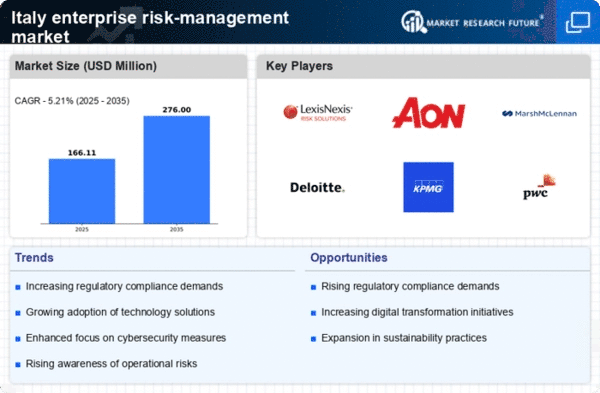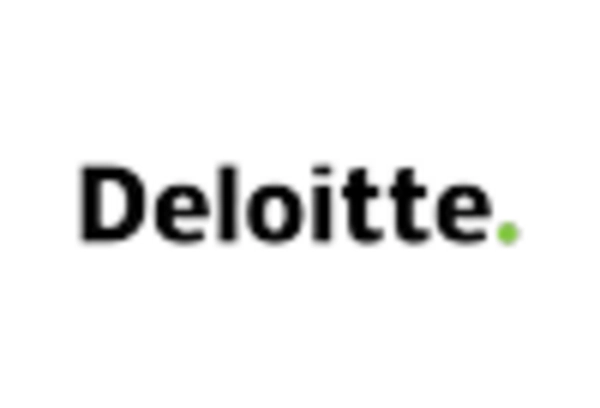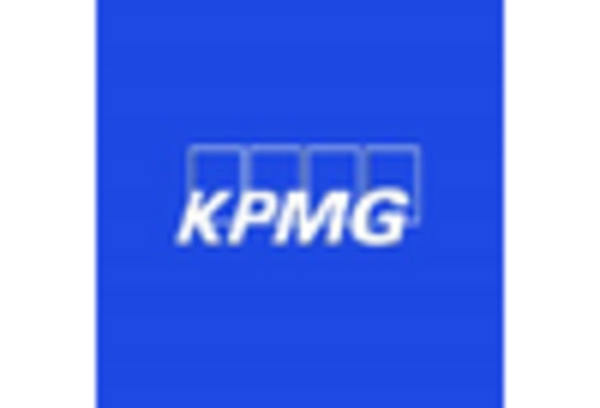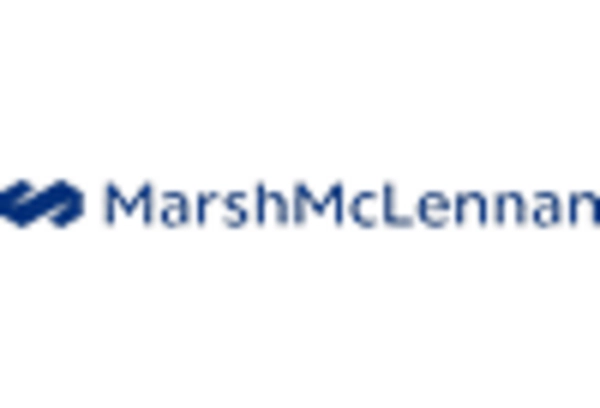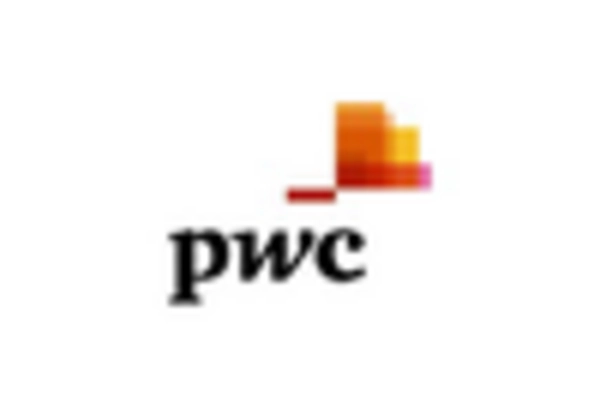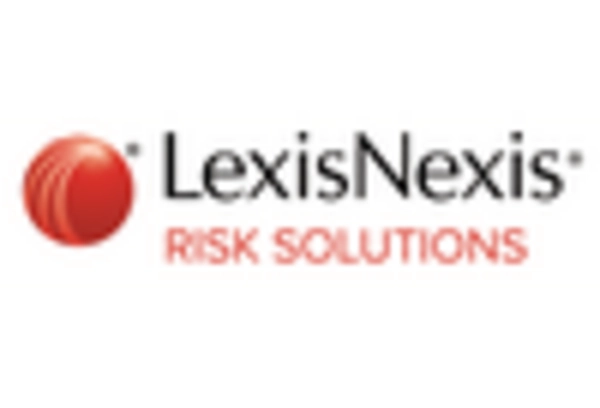Evolving Regulatory Landscape
The enterprise risk-management market in Italy is significantly influenced by the evolving regulatory landscape. Recent changes in regulations require organizations to adopt more stringent risk management practices to ensure compliance. This has led to an increased demand for risk management solutions that can help businesses navigate complex regulatory requirements. In 2025, it is anticipated that compliance-related expenditures will constitute around 25% of total risk management budgets. Consequently, organizations are investing in enterprise risk-management systems that facilitate adherence to regulatory standards, thereby fostering growth in the market.
Rising Awareness of Operational Risks
There is a growing awareness of operational risks within the enterprise risk-management market in Italy. Businesses are increasingly recognizing that operational disruptions can have severe financial implications. This awareness is prompting organizations to implement more robust risk management frameworks to address operational vulnerabilities. In 2025, operational risks are expected to represent nearly 20% of the overall risk profile for many companies. As a result, investments in enterprise risk-management solutions that focus on operational resilience are likely to increase, further driving the market's expansion.
Increased Focus on Cybersecurity Risks
As digital transformation accelerates, the enterprise risk-management market in Italy is witnessing a heightened focus on cybersecurity risks. Organizations are becoming more aware of the vulnerabilities associated with digital operations, leading to a surge in investments in cybersecurity measures. In 2025, it is estimated that cybersecurity-related risks will account for over 30% of the total risk landscape for businesses. This shift necessitates the integration of robust cybersecurity protocols within enterprise risk management strategies, thereby driving growth in the market. Companies are prioritizing the development of comprehensive cybersecurity frameworks to mitigate potential threats.
Growing Demand for Risk Mitigation Solutions
The enterprise risk-management market in Italy is experiencing a notable increase in demand for risk mitigation solutions. Organizations are increasingly recognizing the necessity of identifying and managing potential risks to safeguard their assets and reputation. This trend is driven by the rising complexity of business operations and the need for comprehensive risk assessments. According to recent data, the market is projected to grow at a CAGR of approximately 8.5% over the next five years. Companies are investing in advanced risk management frameworks to enhance their resilience against unforeseen challenges, thereby propelling the enterprise risk-management market forward.
Integration of Data Analytics in Risk Assessment
The integration of data analytics into risk assessment processes is transforming the enterprise risk-management market in Italy. Organizations are leveraging advanced analytics tools to gain insights into potential risks and enhance decision-making capabilities. This trend is expected to drive market growth as companies seek to utilize data-driven approaches for more accurate risk evaluations. By 2025, it is projected that approximately 40% of enterprises will adopt data analytics solutions as part of their risk management strategies. This shift not only improves risk identification but also enables organizations to proactively address potential challenges.


